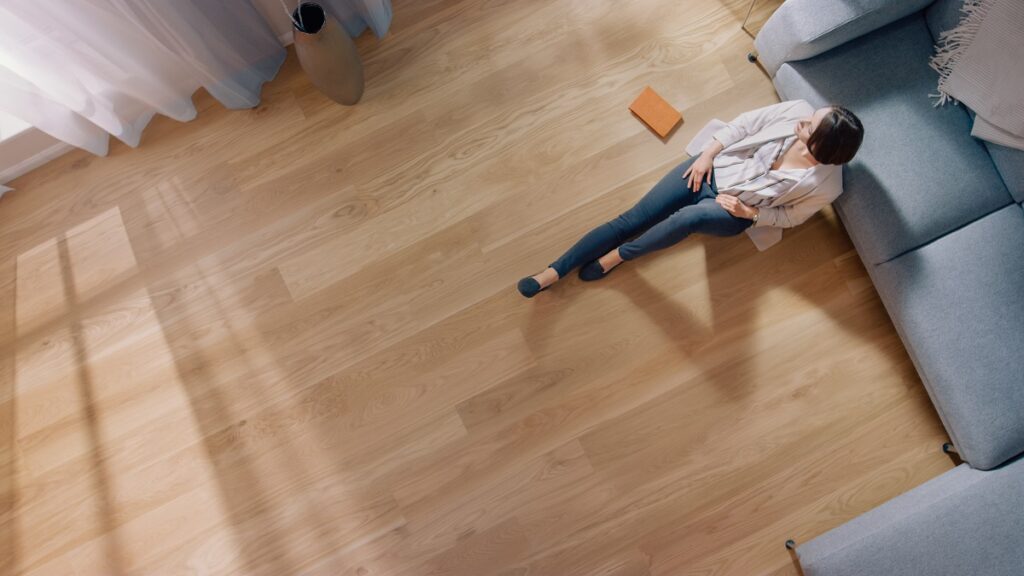In today’s fast-paced world, keeping a clean and organized home can feel like an overwhelming task. With work, family, and personal obligations constantly pulling us in different directions, house cleaning often becomes a low priority. The problem is that neglecting routine cleaning tasks can quickly lead to bigger issues—cluttered spaces, unhealthy indoor air, and even long-term damage to surfaces and furnishings.
The solution? Adopting a regular and structured approach to home care. Building cleaning into your schedule not only keeps your space looking its best but also promotes health, peace of mind, and productivity. In this guide, we’ll explore how structured cleaning routines can transform your home and your lifestyle.
The Psychology Behind a Clean Environment
Clean environments are more than just visually pleasing—they have real psychological and emotional benefits. Studies have shown that people feel less stressed, more focused, and even happier in clean surroundings. Clutter and mess, on the other hand, contribute to anxiety, make it harder to concentrate, and can decrease overall well-being.
By incorporating cleaning into your routine, you remove the mental burden of chaos and create a peaceful, welcoming atmosphere. It’s not just about aesthetics—it’s about creating an environment where you can thrive.
Understanding the Layers of Home Cleaning
Not all cleaning is created equal. Effective maintenance involves different levels of cleaning that address both visible mess and hidden grime:
- Daily cleaning: Tasks like making beds, washing dishes, and wiping down surfaces fall into this category. They’re quick to perform but make a big impact on how your home feels.
- Weekly cleaning: Vacuuming, mopping floors, cleaning bathrooms, and dusting surfaces help control dirt buildup and maintain hygiene.
- Monthly deep cleans: This includes cleaning behind appliances, washing windows, and organizing storage areas. These tasks often get overlooked but are crucial for long-term upkeep.
- Seasonal or annual maintenance: Cleaning gutters, shampooing carpets, and decluttering closets can be done a few times a year to reset your home.
Combining all these levels creates a well-rounded cleaning strategy that keeps your home consistently fresh and functional.
The Time-Saving Power of Structure
One of the major benefits of structured home care is that it saves time in the long run. Rather than facing a massive, day-long cleaning marathon every few weeks, you can divide the tasks into smaller, more manageable chunks. Over time, less buildup means less effort is required to keep things tidy.
Creating a schedule—whether it’s a checklist, calendar reminders, or a digital task manager—allows you to streamline your cleaning process. When each task has its place in your routine, you’ll find that you don’t spend hours wondering what needs to be done. You’ll just do it.
The Role of Habit Formation
Good cleaning habits are like good exercise routines—they become second nature with practice. The key is consistency. At first, it may feel like a chore, but over time, the rewards become clear.
Start with simple goals: 10 minutes of tidying every evening, a focused deep clean each Sunday, or specific zones to address on different days of the week. These small steps form the foundation for a sustainable, long-term approach.
Tools like cleaning caddies, labeled storage, and chore charts can also make your tasks feel less daunting and more actionable.
The Benefits of Delegation
Whether you live alone, with a partner, or have a full household, sharing the responsibility makes a huge difference. Assigning tasks based on age, availability, and preference can create a balanced approach to cleaning.
For families, involving children in age-appropriate chores not only eases your load but teaches valuable life skills. For busy professionals, hiring outside help can be a game-changer.
Many people opt for Recurring Cleaning services to maintain cleanliness without sacrificing their free time. Scheduled professional visits ensure that essential tasks get done regularly, even when life gets hectic.
What Should Be Included in a Regular Cleaning Plan?
If you’re building your own recurring maintenance plan or working with a service provider, here are key areas to include:
- Floors and carpets: Vacuuming and mopping to remove dust, hair, and allergens
- Bathrooms: Scrubbing sinks, tubs, toilets, and tiles to prevent buildup and bacteria
- Kitchens: Wiping down counters, sanitizing appliances, and emptying the fridge
- Bedrooms: Changing linens, dusting furniture, and organizing closets
- Living areas: Dusting electronics, fluffing cushions, and managing cords or clutter
- Entryways: Cleaning door handles, sweeping porches, and removing debris
By addressing each space regularly, you avoid the need for overwhelming cleanup sessions down the road.
Technology and Tools to Support Your Efforts
Modern tools have made home care more efficient than ever. Robotic vacuums, steam mops, and automatic air purifiers can do some of the heavy lifting. Smart home devices can even remind you when it’s time to tackle a specific task.
Cleaning apps like Tody, Home Routines, or Sweepy let you assign, track, and complete tasks easily—keeping everyone on the same page, even across multiple household members.
Microfiber cloths, eco-friendly cleaners, and multi-surface tools reduce waste while maximizing results. Investing in the right tools can turn a burdensome task into a satisfying ritual.
Health and Hygiene: A Cleaner Home is a Safer Home
It’s easy to overlook the connection between cleanliness and health, but the two are deeply intertwined. A dirty home can harbor bacteria, allergens, mold, and pests—all of which contribute to health issues ranging from allergies to respiratory problems.
Regular cleaning routines reduce these risks significantly. By controlling dust and maintaining proper sanitation, you improve indoor air quality and reduce your exposure to harmful microbes. This is especially important for families with young children, elderly members, or those with compromised immune systems.
The COVID-19 pandemic also taught us the importance of surface hygiene. Sanitizing high-touch areas like doorknobs, light switches, and countertops regularly is now considered best practice.
The Environmental Perspective
While keeping your space clean, it’s also possible to do your part for the planet. Opt for natural or biodegradable cleaners, reusable tools, and minimal packaging. Avoid excessive water or power use by choosing energy-efficient equipment and cleaning methods.
Creating a low-waste cleaning routine not only benefits the environment but also sets a great example for those around you. Small actions like using refillable spray bottles or composting kitchen waste can make a significant impact over time.
When to Seek Professional Help
No matter how dedicated you are, there are times when outsourcing cleaning tasks is not only practical but necessary. Busy work schedules, physical limitations, or large homes can make regular maintenance difficult.
This is where recurring cleaning services can offer peace of mind. Professional cleaners come with specialized knowledge, equipment, and efficiency. They often clean areas that go unnoticed during DIY efforts—like ceiling fans, vents, and baseboards.
With customizable packages available, you can choose the frequency and focus that suits your needs. Whether it’s weekly, bi-weekly, or monthly, this option provides a consistent level of cleanliness with minimal effort on your part.
Long-Term Payoffs
Regular maintenance doesn’t just keep your home looking good—it also protects your investment. Flooring, appliances, fixtures, and furnishings all last longer when properly cared for. Replacing carpets, refinishing floors, or restoring stained furniture can be costly, but consistent upkeep prevents such expenses.
In the long run, a small investment of time or resources toward cleaning can save you hundreds—if not thousands—of dollars.
Final Thoughts
Clean homes don’t happen by accident—they happen by design. By establishing a structured, routine-oriented approach to cleaning, you can enjoy a healthier, more organized, and more peaceful living environment.
Whether you choose to handle it yourself or enlist the help of professionals, maintaining your space should never be an afterthought. Consistency is key, and building habits around your household’s specific needs will pay off in every area of your life.
Embracing a system like Recurring Cleaning not only reduces stress but also enhances quality of life. From improved mental clarity to better physical health, a clean space lays the foundation for a better you.



